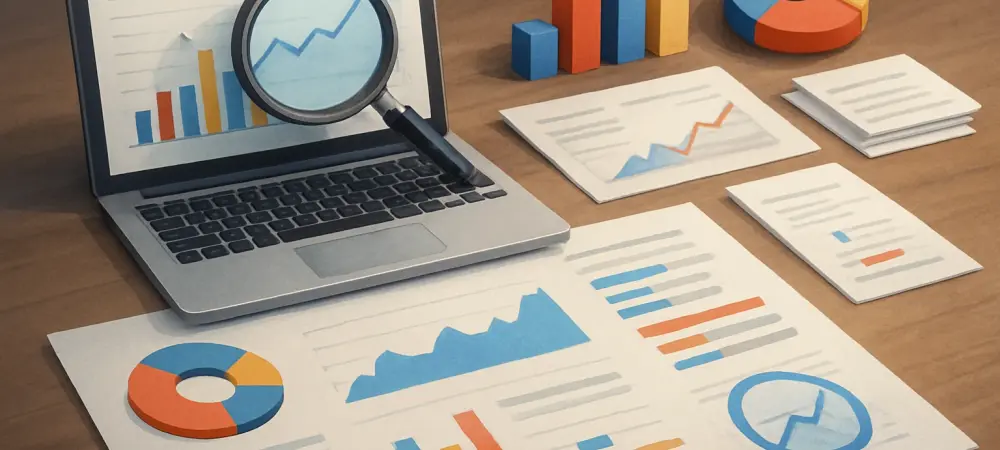In the fast-paced world of digital marketing, staying ahead of search engine trends and challenges is crucial. Today, we’re thrilled to sit down with Aisha Amaira, a renowned MarTech expert with deep expertise in leveraging technology for marketing innovation. With a strong background in CRM marketing technology and customer data platforms, Aisha has a unique perspective on how businesses can harness data to uncover critical customer insights. In this interview, we dive into the recent Google Search Console (GSC) performance report freeze, explore its impact on SEO professionals, unpack emerging trends like the decoupling of impressions and clicks, and discuss the role of AI and scraping in today’s search landscape.
Can you walk us through what unfolded with the Google Search Console performance report updates starting around October 19, 2025?
Sure, it was a bit of a shock for the SEO community when, starting around October 19 or 20, 2025, Google Search Console stopped updating its performance reports for most users. Key metrics like impressions, clicks, and click-through rates just froze in time for many profiles. Interestingly, the 24-hour view kept refreshing with new data, but longer-term overviews, like the seven-day filter, stayed stagnant. This inconsistency made it really tough for marketers to get a clear picture of their organic performance over any meaningful period.
How has this disruption affected the daily grind for SEO professionals and digital marketers?
It’s been a real headache, to be honest. Without fresh GSC data, tasks like forecasting traffic trends or planning budgets have become a guessing game. Many marketers rely on these reports to make data-driven decisions, and the freeze has caused a lot of frustration and uncertainty. I’ve heard from peers who are struggling to explain performance dips or spikes to clients without concrete numbers. It’s not just about the data—it’s about the confidence and clarity that data brings to our work.
There’s been talk of a ‘great decoupling’ between impressions and clicks in search data. Can you explain what this means and how it’s affecting website traffic?
Absolutely, the ‘great decoupling’ is a fascinating and challenging trend. Essentially, we’re seeing impressions—how often a site appears in search results—skyrocket, while actual clicks to those sites aren’t growing at the same rate. This gap is largely influenced by AI-driven features like AI Overviews, which summarize content directly on the search page. Users get answers without clicking through, so websites lose out on traffic despite high visibility. It’s shifting how we think about what ‘success’ looks like in search.
Some speculate that LLM scraping overload is a major factor behind these GSC delays. What’s your perspective on this theory?
I think there’s definitely something to it. LLM scraping refers to large language models pulling massive amounts of web data for training purposes, and that can put a huge strain on systems like Google’s. When servers are bogged down processing these requests, it can delay other functions, like updating GSC reports. While AI Overviews and other features also play a role, the sheer volume of automated scraping could be a significant bottleneck. It’s a reminder of how interconnected and resource-intensive modern search infrastructure is.
Google Search Console has faced glitches in the past, such as the missing crawl data earlier in October 2025. How does this current freeze compare to those previous issues in your view?
This freeze feels more disruptive, primarily because it directly impacts performance metrics, which are the lifeblood of SEO reporting. The missing crawl data earlier in the month was frustrating but didn’t hit day-to-day decision-making as hard. This time, the prolonged outage has left many in the dark for weeks. Google’s response has been a bit more transparent with dashboard updates, but it still feels slower and less reassuring compared to how they’ve handled smaller glitches in the past.
Google has acknowledged the issue and is working on a fix, with some data recovering by late October. How confident are you in their ability to resolve this quickly and restore trust in GSC?
I’m cautiously optimistic. The partial recovery of data up to October 25 by the 27th is a good sign, but it’s still not fully back to normal. Google’s updates via their Search Status Dashboard have been somewhat helpful in keeping us informed, but trust will only be restored when the data is fully current and reliable. I think they need to prioritize clear communication about timelines and, more importantly, address the root causes—whether that’s server overload or something else—to prevent this from happening again.
With GSC data unavailable, what alternative approaches or tools are SEO professionals leaning on to fill the gap?
Many are turning to third-party tools like Ahrefs and SEMrush to get a sense of traffic and keyword performance, though these don’t always align perfectly with GSC’s data. Server-side analytics, such as Google Analytics 4, have also become a go-to for real-time insights. Some teams are even building custom scripts to pull data from various sources and create makeshift dashboards. It’s not ideal, but it’s sparking creativity in how we monitor and analyze performance during a crisis like this.
Looking ahead, what’s your forecast for the role of AI and data scraping in shaping the future of search and SEO tools like GSC?
I believe AI and data scraping will continue to reshape the search landscape in profound ways. We’re likely to see more features like AI Overviews that prioritize instant answers over traditional clicks, which could further widen the impressions-clicks gap. As for scraping, I expect it to intensify unless regulations or tech solutions emerge to manage the load on infrastructure. For SEO tools like GSC, this means Google will need to build more robust systems and perhaps offer more transparency about how AI impacts data. It’s an evolving space, and adaptability will be key for marketers.

